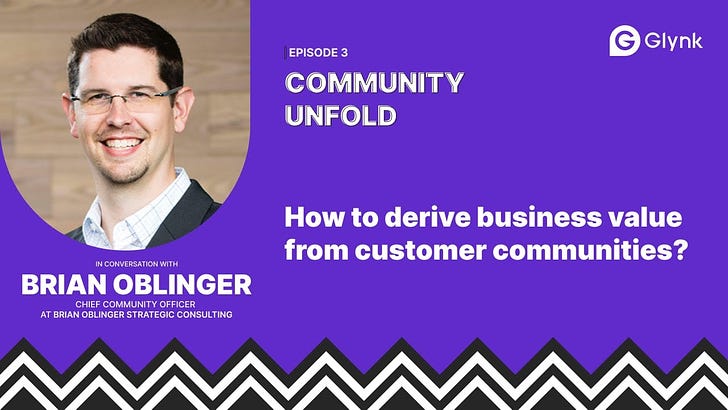What customer communities really mean?
It’s been a tough week for me personally - I won’t mince words. Unfortunately, one-third of my team tested positive for Covid-19 this past week. I, being one of them. With everyone’s health not being stable, fear of the unknown, not being able to be the closest people at the hour of need, sending wishes and good energy through screens, it was not normal and easy. It’s still not. Yes, even I struggled with getting up in the morning and getting my stuff figured out. And while I tried to stitch together a story to publish last week, I just couldn’t. But what’s important is, I overcame all those hurdles and tried to do everything that’s in my capacity to get going!
And you know what’s one of the key things that I’ve realized during the last week?
There’s no better feeling than working with great founders, supportive team, awesome customers and wonderful readers like you. I’m truly blessed to have my team by my side in these critical times. Team is a small word actually, it feels more like a family. And that’s how we always wanted Glynk to be - “Home for all!” So yeah, it feels great to be back up and fine. Thank you for reading and supporting, always. So, let’s start with this week’s story :)
Well, it’s time for me to fulfill my promise that I made to you guys in my last story. Speaking of which, I hope you really enjoyed our Episode 3 of Community Unfold series. As you know, the episode is not over yet and we still have a lot more to talk about. And when I say this, I mean, SaaS businesses are realizing now more than ever, that building a community helps create more stickiness, brand awareness, and ultimately… loyalty. So, I wanted to know more from Brian about how SaaS businesses go about choosing a community platform vendor and what are the key business values that you should expect from building customer communities. Let’s dig in and find out more:
How to derive business value from customer communities?
Brian: Well, how you tell that story depends a lot on the business and the needs of the business. But we know from decades now of looking at data around customer communities that people who participate in communities are often not always, but often more likely to learn the product faster by faster, by more expanding their accounts, expanding their accounts larger. You are happier longer and renew their accounts at a faster and higher rate than people who are not part of communities. And part of that is because they feel like they're part of something bigger than themselves. And so what you want to do is figure out what are the business problems we're trying to solve and how can we contribute to that with the community and then be able to actually show that you've done that? I have the data and the stories around it to communicate that internally in your organization, to say whether it's generating revenue saving costs or expanding accounts or retention numbers, whatever those high level business objectives are, you have to have a story about that and explain how you're contributing to that. And that's when community efforts tend to really take off.
Given your expertise, what's one of the key things that makes a community platform vendor stand out? (apart from features, of course!)
Brian: This one's easy for me. And that's partnership, which sounds kind of weird maybe. But, you know, in the past, when I was evaluating platform vendors for community and support and other things around various companies, the thing that I actually look for is what's their story around their success offering their services, offering their support offerings? What people really want to know when they're buying platforms is, how am I going to be supported? Right? Am I going to sign this contract and then never hear from you again? Or am I going to sign this contract and be able to reach out to people and get answers and have services? And if I need some success type things, can I get access to someone for that? And if the answer is Yes to all of that, then I'm much more likely to feel like, Hey, this is going to be great. They're going to share in my success. They're partnering with me. It's not just me buying some software. And so when I talk to vendors, this is always the thing that I point out to them is that it's actually about relationships, not technology.
That’s all for this week. Hope this episode was insightful for you, because for me, it’s a winner already! A big thank you to Brian Oblinger for being a wonderful contributor and providing such amazing insights.
On a closing note...
Things have been tough lately, but we’re glad to be coming out with good stories every week.. Hope you guys are finding it valuable. If yes, please show some love and do not forget to share it on LinkedIn, Twitter or Facebook - wherever you love to spend most of our time. Or, just say “Hi” by replying to this email. I’d be more than happy to chat with you.
Let’s stand together as a community and fight this out. I am pretty sure we’ll come out from this crisis stronger than ever. But until then, please don’t take it lightly, be wise, stay home, wear masks, look after yourself and your people! Sending prayers and wishes to everyone in need right now. ❤️



